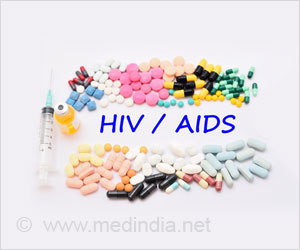Cecilia Chinhamo has endured a torrent of verbal abuse from her husband, since testing positive for HIV six years ago.
Cecilia Chinhamo has endured a torrent of verbal abuse from her husband, since testing positive for HIV six years ago.
"My husband shouts at me and calls me a walking corpse," said the 30-year-old Zimbabwean vegetable vendor. "I can only cry when he says that. What else can I do?"Like many Zimbabwean women with HIV, Chinhamo battles to convince her husband to get tested himself or to use a condom, raising fears for the future of their four-year-old daughter.
"My husband's problem is he thinks he is fit," she said. "He refuses to get tested, insisting he is negative. At times he agrees to use condoms, but it's not easy every time."
She struggles to make ends meet by selling vegetables in Chitungwiza, a working-class suburb outside Harare, and depends on remittances from her sister who works as a bank teller in neighboring South Africa.
Of the 1.6 million Zimbabweans with HIV, 55 percent of are women, according to government statistics.
Women often suffer doubly, not only from the disease, but from abuse from their spouses and isolation by their communities, said Carol Mubira, of the International Treatment Preparedness Coalition (ITPC) research team.
Advertisement
Their findings, released at a recent conference here, revealed that even efforts to prevent the spread of HIV can pose problems for women, who are often reluctant to tell anyone that they have the disease.
Advertisement
"In term of our customs, a woman who does not breastfeed is deemed to be a witch. So that woman is shunned by her relatives and community. HIV positive women are still being stigmatized."
More often than not, according Mubaira the women are "effectively shunned by their communities, isolated and become lonely."
Zimbabwe's national AIDS plan for 2010 says women and girls are particularly vulnerable to the disease.
"They may be compromised in their ability to ward off unwanted sexual attention or negotiate safe sex," it said.
"Increasing levels of poverty lead some women into casual or commercial sex work, while male norms allow for multiple and concurrent partnership, including casual and commercial sex."
The shortage of anti-retroviral (ARV) drugs to treat the disease gives people little incentive to reveal their HIV status.
Zimbabwe imposes an AIDS levy on workers' salaries, money intended to help fight the disease.
But with unemployment estimated at 85 to 90 percent, the money raised is not enough to meet the program's needs.
The government uses a portion of its Value Added Tax to import medications, which cost 18 to 80 US dollars for a month's supply for one patient. But civil servants earn only about 150 dollars a month.
Currently 180,000 people are receiving medication from the government's program, although experts say 600,000 people need treatment.
"By the end of the year, we hope to have 300,000 people on the ARV roll out program," Health Minister Henry Madzorera said. "We are discussing with some organizations, but to overcome the ARV shortages, this may take some time."
Source-AFP
TRI














